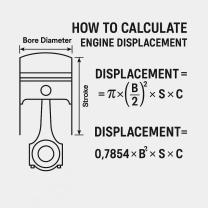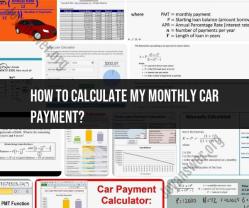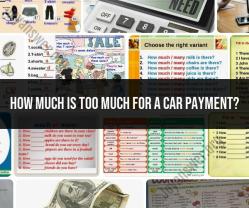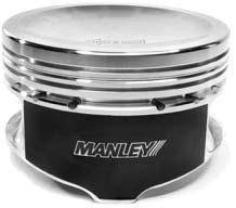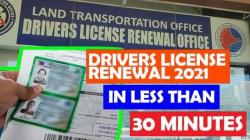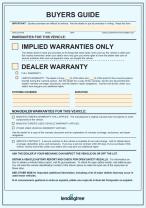How to buy an used car from a private seller?
Buying a used car from a private seller can be a cost-effective way to get a vehicle, but it also requires careful consideration and due diligence to ensure a safe and fair transaction. Here are the key steps and tips to follow when buying a used car from a private seller:
1. Set a Budget:
- Determine how much you're willing to spend on the used car, taking into account not just the purchase price but also potential future expenses such as insurance, taxes, and maintenance.
2. Research the Market:
- Research the make and model of the car you're interested in. Check online resources and publications to understand the average market value of similar vehicles.
3. Identify Potential Cars:
- Look for used cars that match your criteria in terms of make, model, year, and price range.
4. Arrange a Meeting:
- Contact the seller to arrange a meeting to inspect and test drive the car. Be cautious of any seller who is unwilling to meet in person or insists on conducting the transaction remotely.
5. Vehicle History Report:
- Obtain a vehicle history report (e.g., Carfax, AutoCheck) by using the car's vehicle identification number (VIN). This report can reveal important information about the car's history, including accidents and title issues.
6. Inspect the Car:
- Thoroughly inspect the car's exterior, interior, and engine. Check for signs of wear, damage, or rust.
- Take it for a test drive to assess its performance and handling. Pay attention to unusual noises, vibrations, or warning lights on the dashboard.
7. Ask Questions:
- Ask the seller about the car's maintenance history, accident history, and any known issues or repairs. Be sure to inquire about the reason for selling the car.
8. Negotiate the Price:
- Be prepared to negotiate the price with the seller. Research the market value and use this information to determine a fair offer.
9. Arrange a Pre-Purchase Inspection:
- Consider having a trusted mechanic inspect the car to identify any hidden problems or issues. This can provide peace of mind and help you make an informed decision.
10. Check the Title:- Verify that the seller has a clear and valid title to the vehicle. Ensure the VIN on the title matches the car's VIN.
11. Secure Payment:- When you agree on a price, arrange a secure method of payment. It's a good practice to use a cashier's check or an online payment service. Avoid paying in cash if possible, as it can be riskier.
12. Complete the Bill of Sale:- Draft a bill of sale that includes the car's details, sale price, and both the buyer's and seller's information. Some states may have specific forms for this purpose.
13. Transfer Ownership:- Complete the necessary paperwork to transfer ownership with your local Department of Motor Vehicles (DMV). This typically involves signing the title and filling out a bill of sale.
14. Get a Receipt:- Provide the seller with a receipt for the payment, and ensure you receive a copy for your records.
15. Transfer Insurance:- Contact your insurance provider to arrange coverage for the newly acquired vehicle. Be prepared with the necessary information to make this process smoother.
16. Finalize the Sale:- Once all documents are signed, and the payment has been made, finalize the sale by receiving the car's keys and the title.
17. Protect Yourself:- Be cautious of potential scams and fraud. Be especially wary of sellers who pressure you into a quick sale or seem hesitant to provide documentation.
18. Review State-Specific Regulations:- Check your state's DMV website for specific regulations and requirements for buying a used car. These regulations can vary by state.
Remember that when buying a used car from a private seller, there may be no warranty or protection, so you should do your due diligence to ensure the car is in good condition and that the transaction is conducted legally and securely.
Buying a Used Car from a Private Seller: Step-by-Step Process
Purchasing a used car from a private seller can be a cost-effective way to acquire a reliable vehicle. However, it requires careful preparation and due diligence to ensure a smooth and successful transaction. Here's a step-by-step guide to buying a used car from a private seller:
1. Research and Define Your Needs:
- Determine your budget and the type of car that suits your needs and preferences.
- Research different car models and their average market values.
- Consider factors like mileage, fuel efficiency, features, and safety ratings.
2. Find Potential Cars:
- Utilize online classifieds, car listing websites, and social media platforms to search for potential cars.
- Filter your search based on your criteria and preferences.
- Read car descriptions carefully and contact sellers for further details.
3. Schedule Test Drives:
- Arrange test drives for cars that interest you.
- Choose a safe and public location for test drives.
- Thoroughly inspect the car's interior, exterior, and engine compartment.
- Take the car for a test drive on various road conditions to assess its performance.
4. Obtain Vehicle History Report:
- Purchase a vehicle history report from a reputable provider like Carfax or AutoCheck.
- Review the report carefully for any accidents, repairs, or title issues.
5. Conduct a Pre-Purchase Inspection:
- Take the car to an independent mechanic for a thorough pre-purchase inspection.
- The mechanic will check for mechanical issues, potential problems, and overall condition.
- Ask the mechanic for a detailed report of their findings.
6. Negotiate the Price:
- Research the car's fair market value based on its condition, mileage, and similar listings.
- Be prepared to negotiate the price with the seller.
- Aim for a price that is fair to both parties.
7. Complete the Sale:
- Once you've agreed on a price, prepare a bill of sale.
- The bill of sale should include the car's details, price, date, and signatures of both parties.
- Exchange the bill of sale and payment with the seller.
8. Transfer Ownership and Register the Vehicle:
- Sign and transfer the vehicle title to your name.
- Visit the Department of Motor Vehicles (DMV) to register the car in your name.
- Obtain new license plates and insurance coverage for the vehicle.
9. Additional Tips:
- Take a trusted friend or family member with you during test drives and negotiations.
- Be cautious of sellers who are overly pushy or seem dishonest.
- Always get everything in writing, including the bill of sale and any agreements.
- Avoid making payments through money orders or wire transfers, as they are difficult to trace if fraud occurs.
Remember, buying a used car from a private seller requires patience, research, and due diligence. By following these steps and exercising caution, you can increase your chances of finding a reliable and affordable used car.


